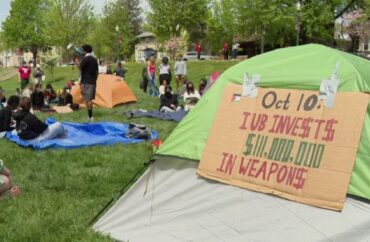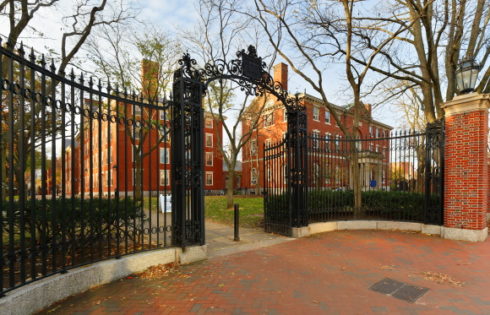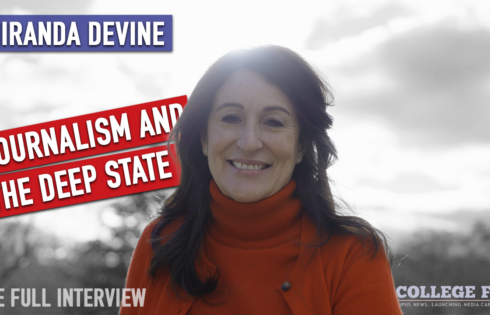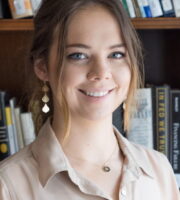
New policies prompt free speech debate
More universities are implementing or considering new rules to crack down on protests this fall as demonstrations over the Israel-Hamas conflict loom.
Changes campus leaders are considering include banning sound amplification, outdoor tents, masks and classroom disruptions, prompting debate among scholars about whether the policies are legitimate or go too far.
The University of North Florida, for example, will consider next month a policy called “Freedom of Expression in Outdoor Areas on Campus.”
The proposal includes multiple restrictions: it bans “interfering with educational activities,” “damaging property,” and “using sound amplification.” Additionally, it prohibits protesting “inside university buildings” and limits the size of protest signs, among other restrictions.
The University of Virginia has already amended its policies on expressive activities this month.
The updated guidelines prohibit the use of outdoor tents and require anyone wearing a mask or face covering to “present an identification document or otherwise establish their identity if requested by an authorized University official,” UVA Today reported.
Additionally, UVA’s new policies stipulate that students cannot host events outdoors between 2 a.m. and 6 a.m.
Rutgers University also updated its “free expression” policy last week, explicitly banning all encampments. In addition, the university will limit where demonstrations can take place on campus and mandate that students submit paperwork to obtain permission for protests.
This trend is not limited to individual institutions. As recently reported by The College Fix, California State University and the University of California systems recently introduced similar policies, including bans on encampments and face masks.
Other schools that have implemented protest restrictions over the past few months include the University of Pennsylvania, Indiana University, and Virginia Commonwealth University.
The new policies have sparked a debate about the balance between maintaining order and protecting free speech on campuses.
Cornell Law Professor William Jacobson commented on the wave of schools implementing new protest policies, telling Fox News, “Schools need to reach a balance between the right of students to an education and the rights of other students to protest.”
Jacobson said many of these measures are not entirely new but clarifications of existing rules.
“A lot of these things that people are complaining about were already implicit in the rules but [had not been stated] explicitly,” he said.
In contrast, some academics view these restrictions as a threat to free expression. Another Cornell professor, Risa Liberwitz, told NBC, “we are seeing a resurgence of repression on campuses that we haven’t seen since the late 1960s.”
The American Association of University Professors also responded critically to the restrictions last week, arguing that they violate freedom of speech.
“These policies severely undermine the academic freedom and freedom of speech and expression that are fundamental to higher education,” the statement read.
“Our colleges and universities should encourage, not suppress, open and vigorous dialogue and debate even on the most deeply held beliefs,” the AAUP added.
MORE: ‘In the millions’: Anti-Israel graffiti, protest garbage costing universities big money
IMAGE: WTHR/Youtube
Like The College Fix on Facebook / Follow us on Twitter






Please join the conversation about our stories on Facebook, Twitter, Instagram, Reddit, MeWe, Rumble, Gab, Minds and Gettr.